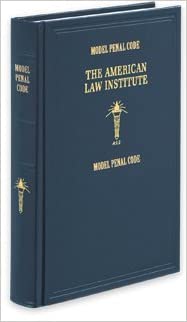
The 8th Amendment
The 8th Amendment

Old English Bill of rights.
Origins
The 8th Amendment is based on the English Bill of Rights, which states, ‘excessive bail shall not be required, nor excessive fines imposed, nor cruel and unusual punishment inflicted.” Clearly, this was an important stance for early law makers. However, they did not state what constitues excessive, nor did they define what is deemed “cruel” or “unusual.” The underlying principle is that punishment should be proportional to the crime.
Mens Rea
When combined with mens rea, (the mental element of a person’s intention to commit a crime), the subjective nature of the 8th Amendment leads to legal challenges that are often left in the hands of the Supreme Court, where outcomes are affected by various things. Until there are agreeed upon guidelines nationwide, these cases are always going to be discretionary.

The American Law Institute model penal code
Intent and Culpability
Due to the subjectivity of determining a persons intent when commiting crime, the American Law Institute developed the model penal code, which offers a four tiered framework for determining mens rea.
This framework organizes different states of culpability into four hierarchical categoriges.
1. Acting consciously with purpose
2. Acting knowing the outcome
3. Acting recklessly disregarding all risks
4. Acting Negligently not aware of the risks
Thus, a crime comitted with intent would carry more servere punishment rather than if the offender acted without intent to comit a crime.
"The act does not create guilt unless the mind
is also guilty"
- William Landay, novelist